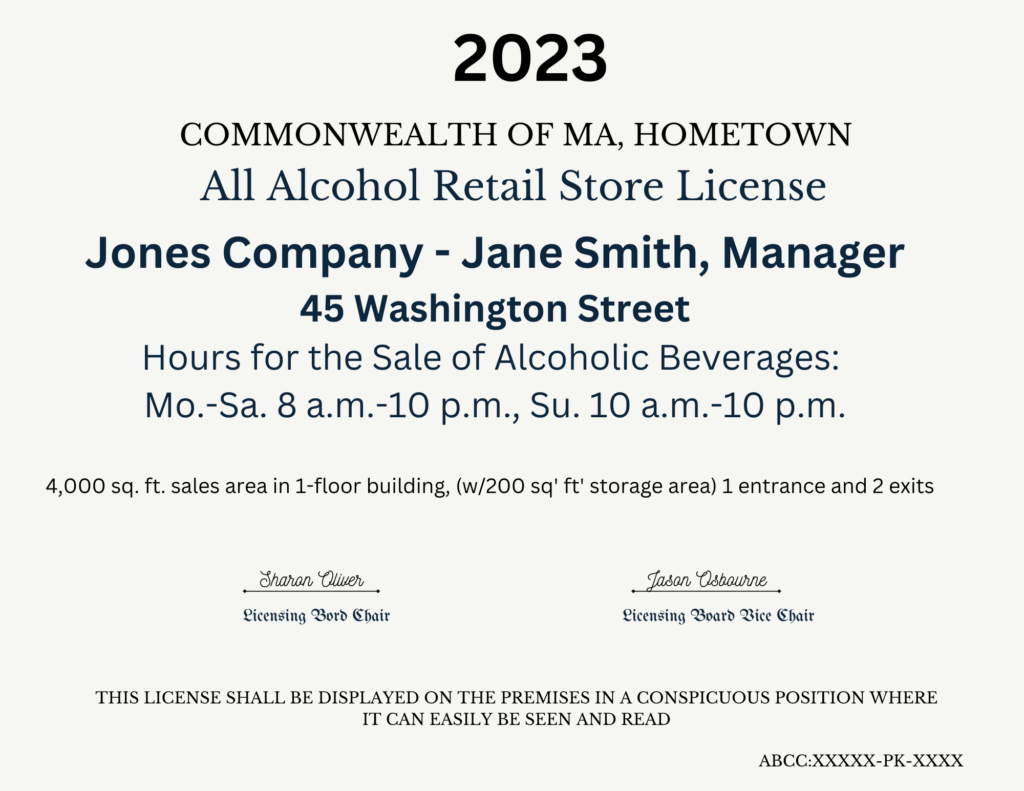Continuing Education
Last week I attended the Framingham MA Alcohol License Seminar. This annual event focuses on Framingham’s Rules and Regulations Governing Alcoholic Beverages and Mass General Law (M.G.L.) Chapter 138: Alcoholic Liquors. Here are some of the highlights.
License Amendments
Ralph Sacramone, Alcoholic Beverages Control (ABCC) Executive Director, detailed when some license amendments are required under this M.G.L.
- Change of Manager
- Change of ownership–i.e. new partners or owners
- Transfer of stock or new stockholders
- Change of Business Name
- Change of Officers/Directors, Trustees
- Change in Corporate Structure i.e. Sole Proprietor to Inc. or LLC
- Renovations or Alteration to Licensed Premises
- Change of Hours (closing or opening earlier or later)
- Change of Location

If the Local Licensing Authority (LLA) and the ABCC do not approve these changes, it is a violation of the law. Thereby, having the right to invoke a penalty(ies). This could result in a suspension prohibiting the sale of alcohol which means lost revenue. A business owner may think they save money in document preparation and application fees; however, losing a day or more of sales is much more costly.
COVID-19 PROVISION EXPIRation
Mr. Sacramone also informed attendees that the extension of premises allowed due to COVID-19 (ABCC Advisory 04/01/22) has not been extended. Hence, the use of patio areas for alcohol service expires April 1, 2023. Owners may need to extend their leases if using private property or obtain agreements for public property in order to permanently amend their alcohol license. They should submit their Alteration of Premises applications to the LLA as soon as possible to use these spaces after April 1.
This same COVID-19 provision includes alcohol sales for takeaway/delivery. It is also allowed through April 1, 2023. The alcohol must be sold with food and at the same price as alcohol for on-premises consumption.
last place of drink
Executive Director Sacramone briefed participants on MGL Ch. 90 S. 24 a.k.a. last place of drink. An individual convicted of driving while under the influence of liquor must state where they obtained their last drink. Subsequently, this information is reported to the ABCC and LLA. Establishments that are frequently reported as a last place of drink are likely to experience compliance checks.
club ALCOHOL licenses
Patrons of establishments with a Club License are restricted to members and guests of members only. These may include fraternal organizations and military clubs operating as private clubs. Advertising and serving alcohol to the public is prohibited.
licensees required to Purchase alcohol from Authorized source
Alcohol license holders must purchase alcohol from authorized sources (MA wholesaler, manufacturer, distributor) under M.G.L. Ch. 138 S. 23. This law is for the consumer’s protection. If the bartender runs out of alcohol, they are not allowed to purchase from a package store. A restaurant or package store owner cannot purchase alcohol in a neighboring state to take advantage of a lower price. An owner cannot transfer alcohol between two, owned entities; thereby, acting as a wholesaler. Both entities are in violation of the law. Records of alcohol purchases and sales are auditable by Department of Revenue.
I am looking forward to more educational opportunities that allow me to bring the best service to my clients.

